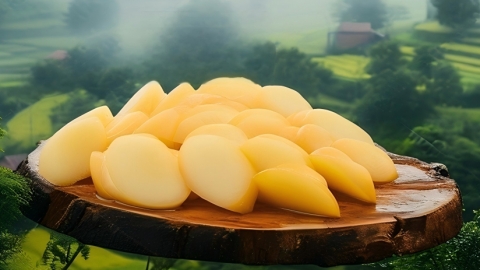What foods should not be consumed with snow lotus?
Snow lotus is generally not recommended to be consumed with raw or cold foods, greasy foods, spicy and stimulating foods, cold-natured herbs, alcoholic beverages, etc. Attention should be paid to proper dietary combinations. If abdominal pain, diarrhea, or allergic reactions occur after consuming snow lotus, it is advisable to seek medical attention promptly.
1. Raw and cold foods: Such as iced drinks, sashimi, and cold salads. According to traditional beliefs, snow lotus has a warm nature, and when consumed together with raw and cold foods, they may interact and irritate the gastrointestinal mucosa, leading to abdominal pain and diarrhea. Additionally, this combination may reduce the warming and tonifying effects of snow lotus.
2. Greasy foods: Such as fried foods, fatty meats, and animal offal. These foods are difficult to digest, and consuming them with snow lotus can increase the burden on the gastrointestinal tract, potentially causing indigestion and possibly affecting the body's absorption of active components in snow lotus.

3. Spicy and stimulating foods: Such as chili peppers, Sichuan pepper, garlic, and mustard. Spicy foods tend to promote internal heat, and when combined with the warm nature of snow lotus, may lead to excessive heat accumulation in the body, causing discomfort such as dry mouth, sore throat, and swelling.
4. Cold-natured herbs: Such as honeysuckle, chrysanthemum, and coptis. According to traditional herbal theory, snow lotus has a warm nature, and combining it with cold-natured herbs may create conflicting properties, potentially neutralizing their respective effects and disrupting the body’s balance, leading to adverse reactions.
5. Alcoholic beverages: Such as white liquor, beer, and red wine. Alcohol can irritate the gastrointestinal tract and may cause unknown interactions with components in snow lotus, increasing the liver’s metabolic burden. It may also lead to symptoms such as dizziness and nausea.
When consuming snow lotus regularly, it is important to control the amount, pair it with light and easily digestible foods, monitor bodily responses after consumption, avoid taking it on an empty stomach, and maintain regular作息 (daily routines) to support the body's absorption and adaptation to the components of snow lotus.




